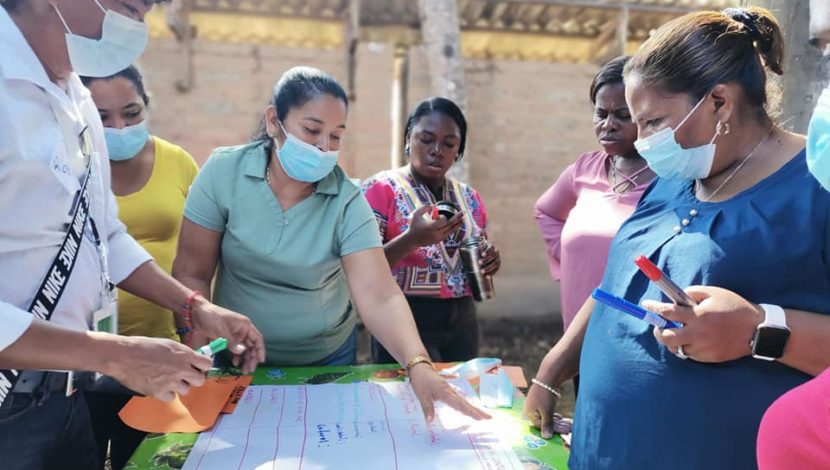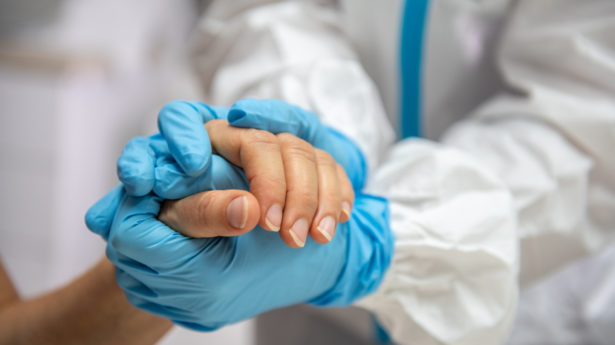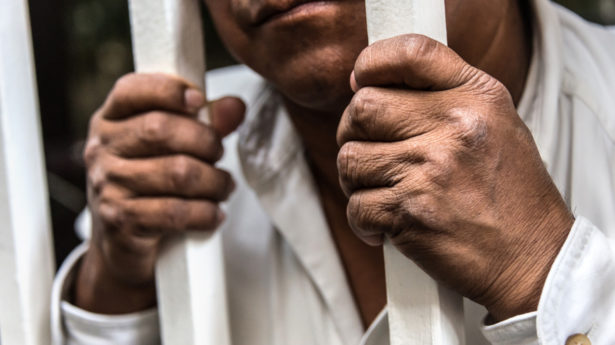The Unitarian Universalist Service Committee advances human rights through grassroots collaborations.
Two Years Later: Navigating the COVID Crisis (Pt. 2)

By Suhra Nahib on May 18, 2022
In part one of this three-part series, UUSC examined the impacts of its partners in Kiribati and Guatemala in addressing the COVID crisis. In part two, we visit partners in Honduras, Mexico, and New York to learn about their efforts to support communities facing high COVID rates.
After the COVID-19 pandemic hit and the entire world went into lockdown, life as we know it changed dramatically. In a short time, we all adjusted to new policies and practices to mitigate the spread of the virus. Many small businesses and organizations suffered from this sudden lockdown. UUSC partners have not been an exception. In 2021, UUSC reported how our partners dealt with COVID-19. This year, we are sharing how our partners have used UUSC grants and what they have done for their communities.
The San Alonso Rodriguez Foundation, FSAR (Tocoa, Colon, Honduras)
The San Alonso Rodriguez Foundation (FSAR), based in Tocoa, Colon, expressed its gratitude and recognition to UUSC. The group has joined the struggle for social justice in the Bajo Aguan region of Honduras.
With UUSC funds, FSAR has:
- Temporarily suspended field and administrative personnel activities. Following the principle of “action without harm,” this means not visiting communities to safeguard the lives of staff and community members and avoid a humanitarian crisis even more significant than that already suffered by the families.
- In addition, in 2021, during the pandemic, FSAR committed to providing humanitarian aid to families affected by the Eta and Iota hurricanes at the end of 2020. The organization focused on people in vulnerable conditions, mainly women and children.
- In Honduras, progress has been made in administering vaccinations, mainly with solidarity support from the international community of vaccines for the public. Currently, the application of the third dose is in progress; however, the country, like the rest of the world, is currently suffering an alarming increase in the number of omicron infections. The deficiency of the health system to respond to this emergency, as well as the lack of statistics and accurate records of diagnoses continue to be a cause for concern.
Fundación para la Justicia y el Estado Democrático de Derecho, FJEDD (Mexico City, Mexico)
UUSC partner Fundación para la Justicia y el Estado Democrático de Derecho (FJEDD) has continued to work remotely due to the surge of the pandemic. At the end of 2021, FJEDD started attending in-person activities. Representatives visited families in Guatemala and El Salvador to support families with basic needs. However, with the rise of the omicron variant at the start of the year, the decision was made to suspend all in-person activities. Many families have been significantly affected by the pandemic, especially those who live in difficult socioeconomic conditions. The pandemic increased their vulnerability and made it more difficult for them to maintain their livelihoods and limited food sources and health care. With the support of UUSC, the foundation provided medicine and paid for medical consultations, specialized exams, groceries, and basic utilities such as electricity and water, which were delivered in Central America and Mexico in coordination with the family committees.
Queer Detainee Empowerment Project, QDEP (New York, New York)
The Queer Detainee Empowerment Project (QDEP) experienced a considerable impact on the organization and the members’ lives due to the pandemic. When the pandemic started, its operation moved to a virtual mode, which has negatively affected many members, especially those who recently arrived in New York City and could not meet with their community for several months. Due to restrictions, QDEP started its COVID-19 support program to ensure that the communities received support through the pandemic.
In October 2021, QDEP opened a new office in Manhattan, where it held in-person meetings for members. However, in January 2022, the organization again closed the offices and worked fully remotely due to the omicron variant.
With UUSC funds, QDEP distributed direct support worth more than $240,180 to 376 trans and queer immigrants living in New York City with assistance for groceries, medication, utilities, and phone services so clients could stay connected with their loved ones, resources in the United States, and other service providers. QDEP also provided support for rent and mental health services. The COVID support program ended in September 2021.
The organization still provides sporadic COVID-19 support by purchasing groceries, medications, and offering rent assistance.
In part three of this series, we venture to Fiji to learn about the life-saving work of another UUSC partner.
Photo Credit: The San Alonso Rodriguez Foundation

